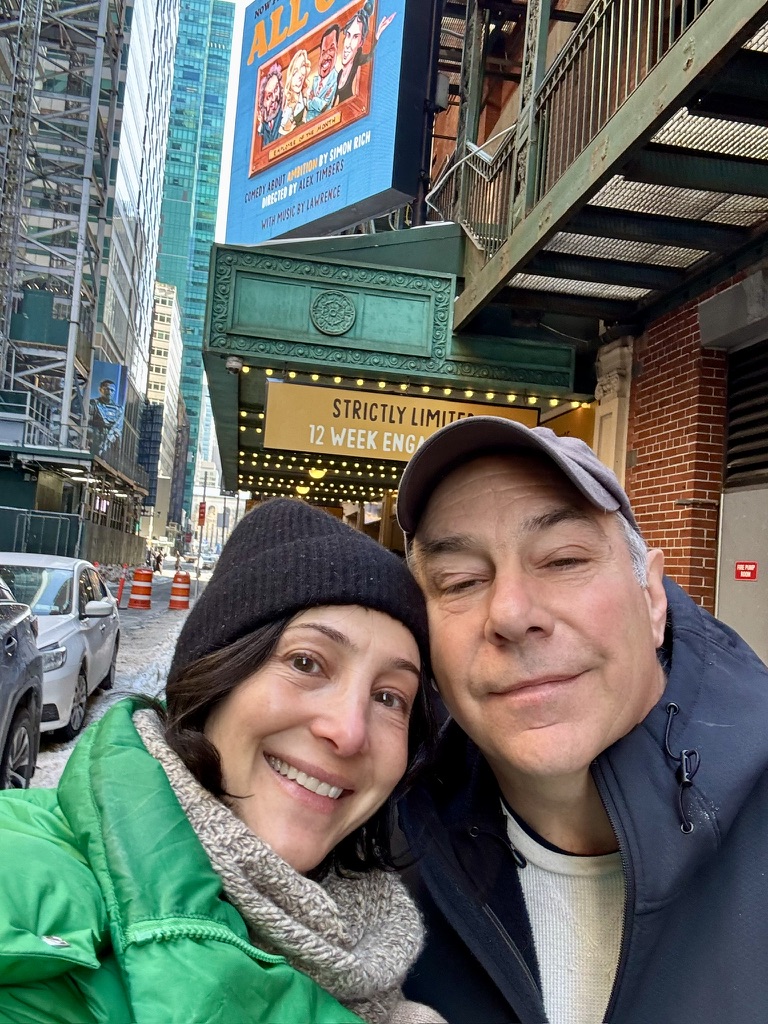My friend and I were discussing the possibilities of a barbecue this summer. I asked him about the size and condition of his gas grill.
“It’s a little dented, but it came that way. My dad assembled it and gave it to me for Father’s Day, but he didn’t secure it well in the back of the truck when he drove it over. It got tossed around a bit. But it works fine.”
“Hard to complain about a free gas grill,” I said. “I had to buy my own. And assemble it by myself, too.”
As I said these words, it occurred to me that I hadn’t received anything from either of my parents since I was 17 years old.
My father left my life when I was very young, and my mother rapidly descended into abject poverty when her second husband – an evil son-of-a-bitch – left her with almost nothing about a year after I graduated from high school. Other than a music box, a collection of state quarters, and a few other small gifts, I haven’t received anything of value from my parents for almost thirty years.
No gas grill.
No college tuition.
No cash bailouts when I was in trouble.
No downpayment on my first home.
No birthday, wedding, house warming, or anniversary gifts.
No grandparent gifts for my children.
Furthermore, there was no inheritance when my mother passed away. No family home. No savings account. No precious family heirlooms. My mother died in a nursing home with almost nothing to her name.
I’ve been on my own for a long, long time.
- I’ve bought every car that I’ve ever owned with my own money.
- I paid every penny of my college tuition.
- When I was arrested for a crime I did not commit, I worked more than 80 hours a week for almost two years to pay the $25,000 attorney fee.
- When I was 22 years-old and lost my home, there was no childhood home to return to. No place to recover and regain my footing. I moved into my car and became homeless for a time.
No safety net. No support system. No backup plan.
Thankfully, my life has turned out well despite the lack of support. I managed to make it to college when I was 23 years old and graduated five years later with degrees in English and elementary education. I became the teacher and writer I always dreamed of being when I was a little boy.
I was lucky. My dreams came true.
But I find myself wondering about the long-term financial impact of financially stable parents on a person. More specifically, how do outcomes differ between individuals who have the financial support of their parents into adulthood and those who do not?
When a person has to pay their way through college, how does this impact their life in the long term?
When a person doesn’t have parents to assist with the purchase of a car or a home, how does this change their long-term financial outlook? When there are no parents to pay for weddings, assist with home repairs, provide infusions of cash at precarious moments in the person’s life, and even buy the occasional meal or holiday gift, how does this alter a person’s future?
is their financial outlook vastly different? Do they differ in terms of happiness and healthiness? Do their life spans differ significantly? Do they become fundamentally different people?
I have friends whose parents have paid for their family vacations. Supplied a downpayment on a home. Fully funded their wedding and honeymoon. Paid every penny of their college tuition.
I have a friend with two children who has never purchased a diaper in his life.
His mother buys them.
I have friends who have joined successful family businesses and have never felt the fear, uncertainty, and sting of long-term unemployment or debilitating poverty. I have friends who have been bailed out of enormous jams by their parents.
Then I have friends like me who have had to grind it out on their own. Find their own way. Save themselves over and over again.
If you’re a sociologist, I’d like you to conduct a study examining the long-term outcomes of people who receive parental support after high school graduation and those who do not. I’d like to know how these two groups differ in employment, wealth, happiness, life expectancy, health, marital outcomes, and overall achievement.
I’m curious. Which type of person fares better in the long run?
I’d like to think that those who make it on their own are ultimately more successful in the indicators I have mentioned above, but I suspect that this isn’t the case. If I were to hazard a guess, I suspect that people with parental support after high school are far better off than those who do not. They tend to be happier, healthier, and wealthier than their counterparts.
And while I certainly don’t denigrate my friends who have enjoyed the ongoing support of their parents or joined ready-made family businesses, I tend to be more impressed by the people I know who had to blaze their own trail through life, absent the gifts of college tuition, downpayments, family businesses, and gas grills.

Unfortunately, I suspect that many of these parentless people fail to blaze their own trails and often fall by the wayside, without anyone acknowledging how a lack of parental support may have contributed to their negative outcomes.
Perhaps I’m wrong. I hope so. In a day and age in which the presumptive Republican Presidential nominee claims to be a self-made business man despite joining his family’s real estate business at an early age and receiving an enormous cash infusion from a father who was worth more than 200 million dollars, it would be nice to know that actual self-made people exist and thrive, despite their lack of familial support.
Get on that, sociologists. I want to know.



This Post Has 0 Comments
Great post, Matt and I think about this all the time. Personally, I fall in the category where most everything was taken care of by my parents (less now) and I always wonder if I was "better-off" to where I am now at almost 40. In hindsight, the answer I believe, is ‘no’ . Because things were easier for me, it had a negative effect on my work ethic. Because much was given to me, I might not have worked as hard as I should have and I’m paying for it now. I actually wish things were different growing up as now I need to learn a brand new work ethic I never had at a younger age. When you have kids, things take on a new purpose, especially as a single dad. This is now my motivation and I’m working harder than ever to keep things moving forward, without the help.
So to answer your question from my perspective, I need to define success less in financial terms and more in how I’ve lived my life and added value to others. In other words, the size of the crowd at my funeral is infinitely greater in value to me than the size of my house, my 401k and all other "things" . Cheers!
Thanks so much for your honesty, Jeff. Very interesting.
My name is Patty and I am a sociologist… This is not my area of research, but I’ll share a couple thoughts. Wish I could offer simple answers to your questions asked. One reason- the definition of concepts such as family, adulthood, support, and encouragement are components of a dynamic cognitive culture. They are not defined the same today as they were even 25 years ago. A second reason- we form our world view based on personal experience. In no way can I relate to a political candidate who calls a million dollars a small sum of money to receive from parents- I would accept it from anyone! Each of us will describe our life course from our own set of circumstances. Some will have received more, some less. I teach at a small private college in PA. Students compare financial support they are receiving. Those working part or full-time perceive their college experience as different; more difficult, more competitive. Some parents could offer financial support and do not. Others offer encouragement, love in addition to or instead of money/materials. Some families demonstrate minimal to zero support between members. A longitudinal study using a representative sample could tell us a lot- if we can agree on what it means to be self-made and successful. That would be another challenge. I’ll stop now… Appreciate that you care about developing character.
~ptcollamer
Thanks so much for the perspective. Not surprised to discover that it’s not as easy as I envision. Damn those soft sciences. Nothing hard and fast and easily measurable.
For myself, knowing I didn’t have a safety net made me a lot more risk-averse than I might otherwise have been. I was quick to take the first steady job offered me, and while I worked hard, got promoted and did well, in my first 12 years out of school, I didn’t reach for anything that felt hard to attain. I did finally get to a point where I had enough of a nest egg of my own to move across the country and switch careers, but it took a long time to build that confidence.
Thanks for sharing, Claire. Interesting perspective, not unlike my own.